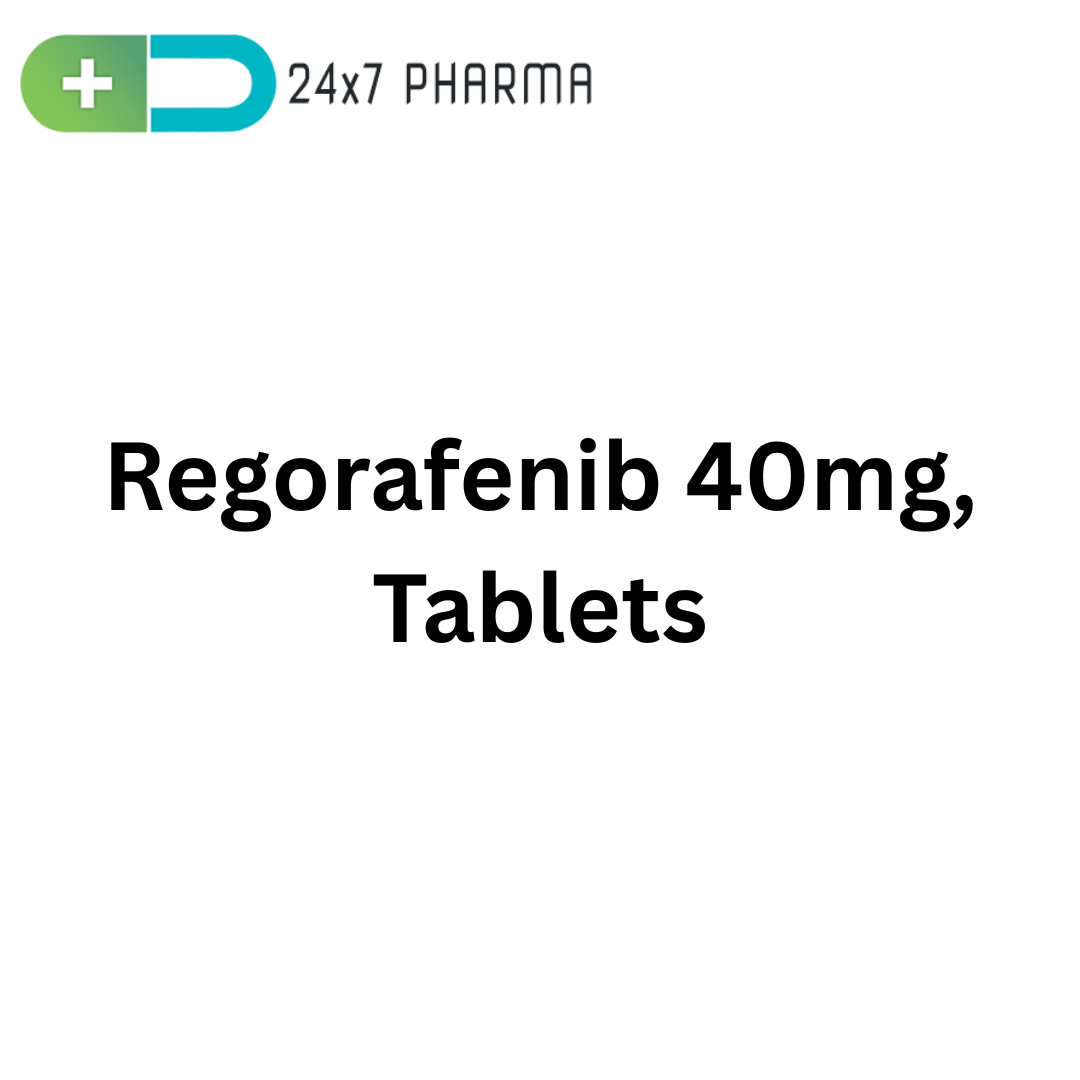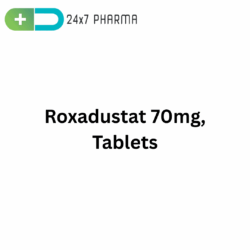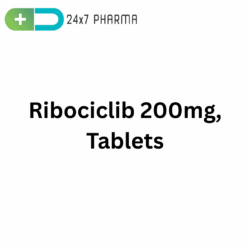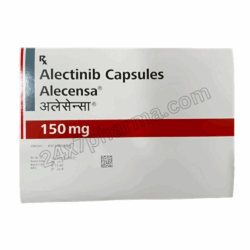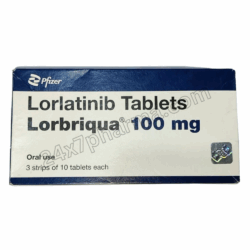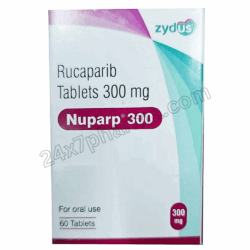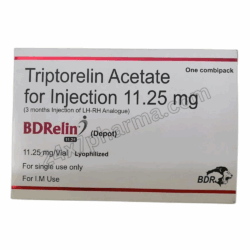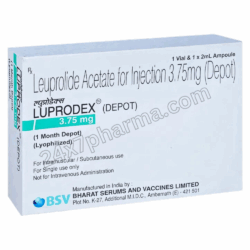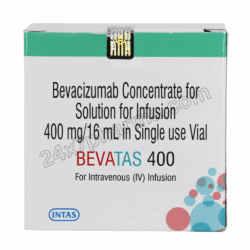Regonix 40mg, Regorafenib Tablets
Cancer treatment has significantly evolved over the years with the introduction of advanced targeted therapies that selectively act on cancerous cells while minimizing harm to healthy tissues. Regonix 40mg, containing Regorafenib, is one such oral targeted therapy used in treating certain types of cancers. It belongs to a class of drugs known as multikinase inhibitors and is primarily prescribed for metastatic colorectal cancer, gastrointestinal stromal tumors (GIST), and hepatocellular carcinoma (HCC). This medication has shown promise in extending survival, controlling tumor growth, and improving quality of life in patients where other treatments have failed.
What is Regonix 40mg?
Regonix 40mg is the brand name for Regorafenib tablets, an oral anticancer drug that works by blocking specific enzymes involved in cancer growth and progression. It is classified as a tyrosine kinase inhibitor (TKI) and is considered a targeted therapy, meaning it interferes with molecular pathways that tumors use to grow and spread.
- Generic Name: Regorafenib
- Brand Name: Regonix 40mg
- Formulation: Oral tablet
- Therapeutic Class: Antineoplastic, Multikinase inhibitor
- Strength: 40mg
How Regonix 40mg Works (Mechanism of Action)
Regorafenib targets multiple protein kinases that play a vital role in tumor growth, angiogenesis (formation of new blood vessels that supply tumors), and metastasis (spread of cancer).
- Inhibition of angiogenesis: Regorafenib blocks vascular endothelial growth factor receptors (VEGFR1, VEGFR2, VEGFR3), thereby preventing the tumor from forming new blood vessels.
- Tumor growth suppression: It prevents the proliferation of cancer cells by blocking oncogenic kinases including KIT, RET, and RAF.
- Anti-metastatic effect: By blocking fibroblast growth factor receptor (FGFR) and platelet-derived growth factor receptor (PDGFR), it reduces cancer’s ability to invade nearby tissues.
- Thus, Regonix 40mg works by cutting off the tumor’s blood supply and interfering with its growth signals, slowing or stopping progression.
How to Use / Indications
Regonix 40mg is specifically approved and indicated for:
- Metastatic Colorectal Cancer (mCRC): For patients previously treated with standard chemotherapy (fluoropyrimidine, oxaliplatin, irinotecan) and biological agents (anti-VEGF and anti-EGFR therapies).
- Gastrointestinal Stromal Tumors (GIST): For patients who have failed treatment with imatinib and sunitinib.
- Hepatocellular Carcinoma (HCC): For those who have received sorafenib treatment in the past.
- It is used under the strict guidance of an oncologist when other treatments no longer work or are not tolerated.
How to Take / Dosage
The recommended dosage of Regonix 40mg (Regorafenib) is:
- Standard Dose: 160 mg once daily (4 tablets of 40mg each) taken orally after a low-fat meal.
- Dosing Cycle: 3 weeks of continuous treatment followed by 1 week off (28-day cycle).
Administration Guidelines:
- Take the tablets at the same time each day.
- Swallow whole with water, do not crush or chew.
- Take after a low-fat meal (<30% fat) to optimize absorption.
- If a dose is missed, it can be taken the same day. If vomiting occurs, do not retake the dose.
Other Dosage Adjustments
- Dose Reduction: May be reduced stepwise from 160mg → 120mg → 80mg daily depending on tolerance and side effects.
- Elderly Patients: Usually no specific adjustment, but careful monitoring is required.
- Liver Impairment: Mild to moderate impairment may not require dose adjustment, but severe impairment is not recommended.
- Renal Impairment: Generally safe in mild to moderate impairment, but caution is needed in severe kidney dysfunction.
Side Effects
Like most cancer therapies, Regonix 40mg has side effects, some manageable and others serious.
Common Side Effects:
- Fatigue, weakness
- Loss of appetite
- Weight loss
- Diarrhea
- Nausea, vomiting
- Abdominal pain
- Hoarseness of voice
- Hair thinning
Serious Side Effects:
- Hand-foot sin reaction (redness, swelling, pain on palms/soles)
- Hypertension (high blood pressure)
- Liver toxicity (elevated liver enzymes, jaundice)
- Severe bleeding (nosebleeds, gastrointestinal bleeding)
- Cardiac problems (chest pain, heart attack risk)
- Gastrointestinal perforation (rare but life-threatening)
- Monitoring: Regular liver function tests, blood pressure checks, and overall health assessments are mandatory during therapy.
Storage
- Store at room temperature (15°C–30°C).
- Keep away from heat, moisture, and direct light.
- Store in the original container, tightly closed.
- Keep out of reach of children and pets.
Benefits of Regonix 40mg
- Prolongs survival: Increases overall survival and progression-free survival in advanced cancer patients.
- Targeted therapy: Works specifically on cancer-related pathways with less damage to normal cells compared to chemotherapy.
- Oral administration: Easy and convenient compared to intravenous chemotherapy.
- Last-line option: Provides hope for patients with limited treatment alternatives.
Prescription Information
- Regonix 40mg is a prescription-only medication.
- Must be prescribed by an oncologist.
- Requires continuous medical supervision.
- Self-medication or overdose can be dangerous.
- To monitor efficacy, routine imaging and blood tests are necessary.
Drug Interactions
Regorafenib interacts with several drugs, which can alter its effect or increase toxicity.
Major Interactions:
- CYP3A4 inhibitors (ketoconazole, clarithromycin): Increase drug levels → higher toxicity.
- CYP3A4 inducers (rifampicin, phenytoin): Reduce drug effectiveness.
- Anticoagulants (warfarin): Increased risk of bleeding.
- Other cancer drugs: Caution when combined with other TKIs or chemotherapy.
Food Interactions:
- High-fat meals can significantly increase drug absorption → avoid taking with fatty foods.
- Grapefruit juice should be avoid (affects metabolism).
FAQs
Is Regonix 40mg a chemotherapy drug?
Not exactly. It is a targeted therapy, unlike traditional chemotherapy, but still falls under the category of anticancer medications.
Can Regonix cure cancer?
No, it does not cure cancer. It helps control disease progression and extend survival.
Can Regorafenib affect the liver?
Yes, liver toxicity is a serious side effect. Regular liver function monitoring is essential.
Is Regonix available in all countries?
Availability depends on regulatory approval. It is widely use in India, the US, and Europe.
Conclusion
Regonix 40mg (Regorafenib tablets) is a powerful targeted cancer therapy used in advanced stages of colorectal cancer, GIST, and liver cancer. Its mechanism of action involves blocking multiple pathways essential for cancer growth and blood supply. While it offers hope to patients with limited treatment options, it also carries the risk of significant side effects and requires close monitoring by oncologists. With proper use, dose management, and medical supervision, Regonix can improve survival outcomes and quality of life for patients battling advanced cancers.

